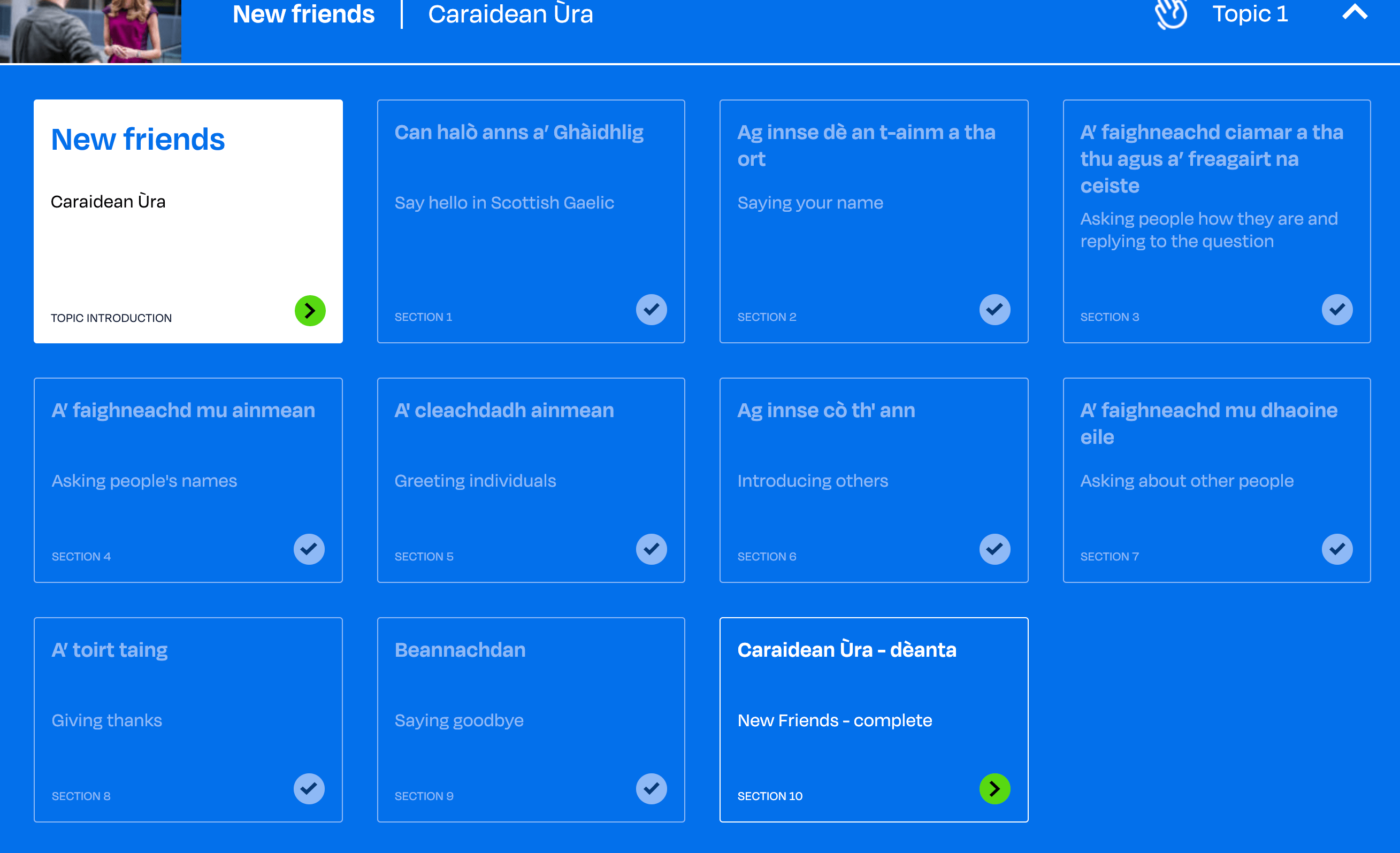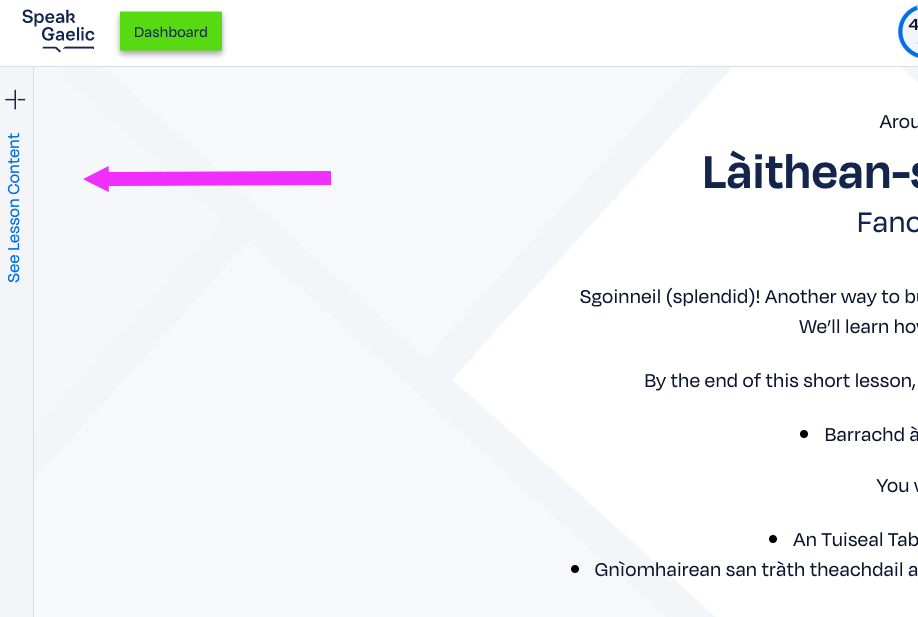Bha mi nam dhùisg!
I was awake!
Gaelic has a small number of verbal nouns which distinguish between a state or condition and an action. To express the state, we use the prepositional possessives we learnt in Cuspair 7.
| Preposition + possessive | Prepositional Possessive | Lenites? |
| ann + mo = | nam in my | Yes |
| ann + do = | nad in your | Yes |
| ann + a = | na in his | Yes |
| ann + a/ a h- = | na/ na h‑ (before vowels) in her | No |
| ann + ar/ ar n- = | nar in our | No |
| ann + ur/ ur n- = | nur/ nur n- (before vowels) in your (pl) | No |
| ann + an/ am = | nan/ nam (before b, f, m, p) in their | No |
nam
in my
nad
in your
na
in his
na/na h‑
in her
nar
in our
nur/nur n-
in your (pl)
nan / nam
in their
Our list here shows some of the most common verbal nouns that can be stative. We will learn more later on.
seasamh (m)
standing
cadal (m)
sleeping
laighe (f)
lying
suidhe (m)
sitting
dùisg (f)
awake
ruith (f)
running
tost (m)
silence
crùban (m)
crouch
Bha mi nam chadal fad an latha.
I was sleeping all day.
Bha mi nam sheasamh aig a’ bhàr fad na h-oidhche.
I was standing at the bar all night.
Bha thu nad dhùisg gu math tràth sa mhadainn.
You were awake very early in the morning.
An robh thu nad ruith aig an àm?
Were you running at the time?
Cha bhi i na dùisg aig an àm sin.
She won’t be awake at that time.
An neach nach cinn na chadal, cha chinn e na dhùisg.
He who will not prosper in his sleep, will not prosper when awake




